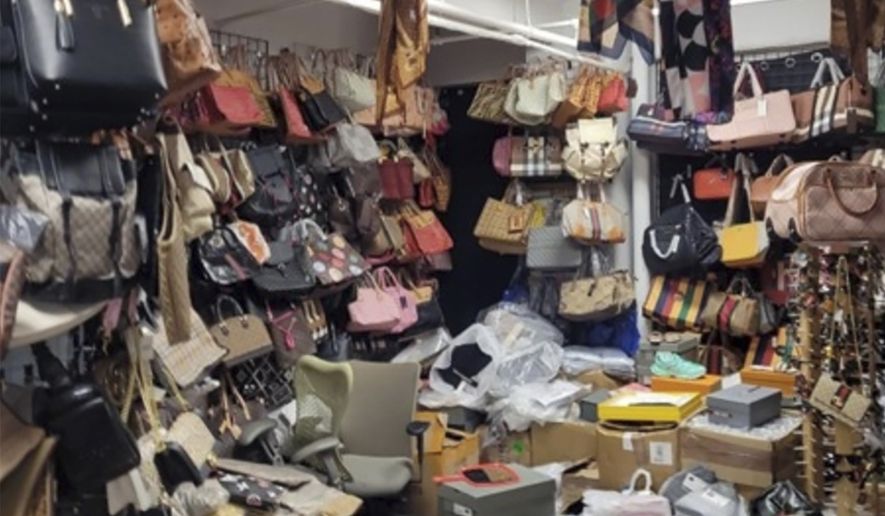OPINION:
Every year my wife, Killy, and I think about de-cluttering. Last year we tackled our kitchen, bedrooms, garage and my study. It was a revelation. These are some of the things that we found:
- A huge quantity of business cards from people, many of whom I had no recollection of meeting.
- Several boxes of mysterious adapters and cables that fitted no known phones or computers.
- Lots of empty boxes. Why did we store empty boxes for years?
- A pile of cassette tapes! Not very useful for a household that no longer has the means to play cassettes.
- A huge pile of books that we are never likely to read.
- A handful of coins from several countries, some of which I have never visited.
- A box full of keys – keys to what? I asked myself.
Subscribe to have The Washington Times’ Higher Ground delivered to your inbox every Sunday.
In the garage we found numerous half-burned candles, several tins of paint, each with enough paint to cover a postage stamp, and a good number of chipped and broken vases – why did we keep them?
As for the wardrobes: there were sweaters, jackets and suits I wore in the 1980s and which I hadn’t worn for several decades. I still tried them on – although quite why, I don’t know!
And in the kitchen – why keep an inherited old tea set last used in our previous home 27 years ago? We couldn’t stand it then and certainly would never use it now.
Clutter seems to be a disease of our time and culture. It used to be that when the kids left home you could consider “downsizing” but instead it seems that clutter expands to fill the space made available. Although it is tempting to speculate about why we all accumulate so much, the issue with clutter is how we deal with it. Because successful de-cluttering is hard; we really need to have the right attitude and recognize that clutter is a real problem.
The word “clutter” is apparently related to “clot.” And as clots block up arteries and impede blood flow with disastrous results, so clutter does the same to our lives.
Think about how it leads to wasted time, for example. Consider a no-doubt all-too-familiar scenario: you are working on a project and you realize that you need item A (a document, tool or kitchen utensil), but because there is so much clutter you have to search for it. Now note what invariably happens. In the process of trying to find A, you successively uncover items B, C and D, each of which is far more interesting and each of which engages your attention. The result is that when you finally do discover item A, you have either run out of time to use it or you cannot remember what you wanted it for in the first place.
So we must de-clutter.
But the practicalities of dealing with clutter are far from easy. We have to engage in a process of filtering. So, in my study, I end up asking about everything: should I give it away, keep it, give it to a charity shop or simply consign it to the trash? If you are like me, your clutter is probably virtually worthless in financial terms, but you do need to remember that money is not the only measure of worth. The past has value, and memories of events – and particularly of individuals – should matter to us.
It is worth remembering how, in the Old Testament, Samuel put up a large memorial stone and “named it Ebenezer [which means ’the stone of help], for he said, ’Up to this point the Lord has helped us!’” (1 Samuel 7:12, NLT). There are some things you may wish to keep as “Ebenezers” – honored reminders of long-ago friends, mementos of times rich in blessing and testimonies of difficulties overcome.
Yet although we may save some precious reminders, the reality is that much must be disposed of, so how do we decide what must go? As I leaf through old files, letters and books I find myself repeatedly thinking of words such as “essential” and “priority.” Anyone who has ever tried de-cluttering a study or garage will be aware of the danger that, after a few hours’ labor, you will actually manage to justify keeping almost everything. We need to ask some very hard questions. Do I need this? Am I ever going to need it?
One of the reasons I think many people today find it hard to deal with clutter is they prefer to think that they will be here for ever. They imagine that sooner or later they really are going to read those unread books, do that unopened jigsaw or experiment with those recipes. Here, as in so many other areas, I am helped by knowing that the Christian life is like a journey. As I look at all I have before me, I repeatedly ask myself a simple question: “Is it needed on the voyage?” If you are looking forward to the next world, there’s a lot to be said for traveling light through this one.
–
J.John is an Evangelist, minister, speaker, broadcaster and writer. He has been in ministry for four decades. He has spoken in towns, cities and universities in 69 countries.
J.John lives near London in England. He is married to Killy and is a father and grandfather. Find him on social media @jjohnglobal and on The J. John Podcast.




Please read our comment policy before commenting.